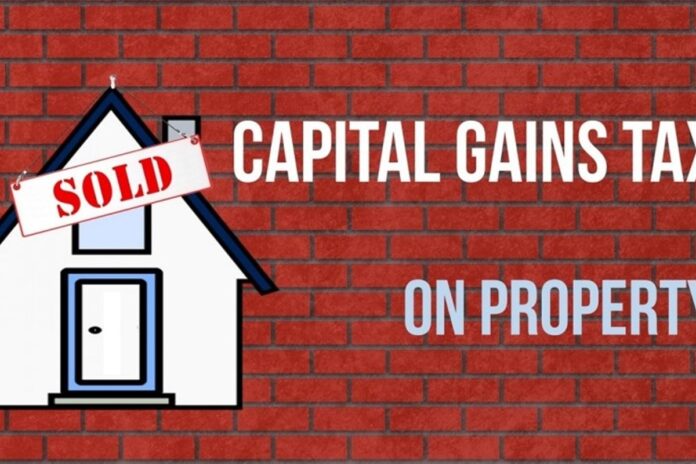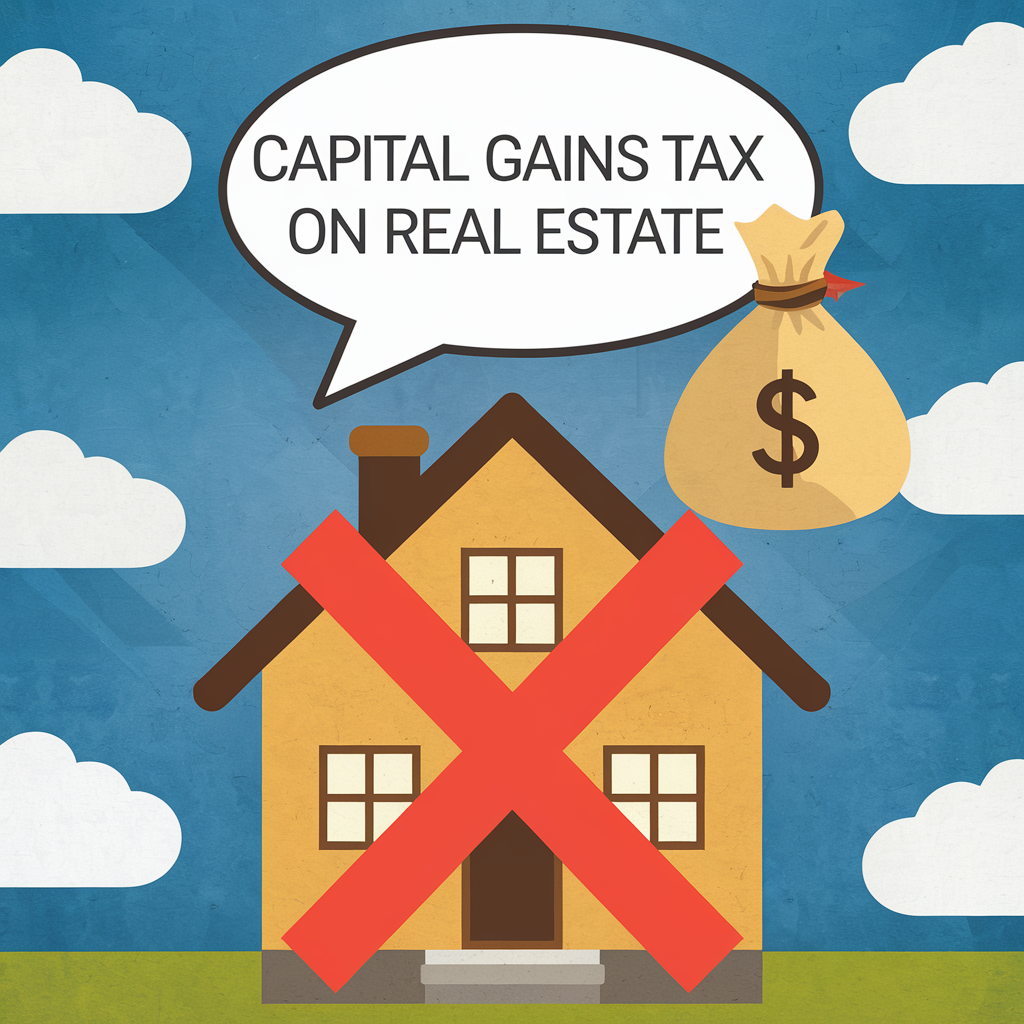Selling a home is a significant milestone, especially for first-time sellers. It’s a moment that often comes with excitement, new beginnings, and potential financial gain. However, alongside these positive emotions, there is an important financial consideration that can impact the profit from the sale: capital gains tax on real estate. This tax, imposed on the profit made from the sale of property, can have a substantial effect on the overall financial outcome for sellers. Understanding how capital gains tax works, especially for first-time sellers, is crucial to making informed decisions and maximizing profits.
What is Capital Gains Tax on Real Estate?

Capital gains tax is levied on the profit (or gain) that is realized when an individual sells an asset, such as real estate, for more than the purchase price. This tax is applicable to various types of assets, but it is particularly relevant in the real estate sector, where property values can significantly appreciate over time. In the context of real estate, the capital gain is calculated by subtracting the original purchase price (including any improvements made to the property and associated costs) from the final selling price. The resulting amount is considered the capital gain and is subject to taxation.
First-time sellers often find themselves navigating the complexities of capital gains tax, which can vary based on several factors, including the duration of property ownership and the seller’s residency status. In Switzerland, for instance, the hausverkauf grundstückgewinnsteuer plays a significant role in the financial outcome of a property sale. This term refers to the property capital gains tax applicable in Swiss real estate transactions. The specific rate and rules may differ across cantons, but understanding the fundamentals of this tax is crucial for any first-time seller in the country.
How Does Capital Gains Tax Work?

Capital gains tax on real estate is calculated based on the difference between the selling price and the adjusted basis of the property. The adjusted basis typically includes the original purchase price, costs of improvements made over time, and any related expenses, such as legal fees or real estate commissions. To calculate the capital gain, sellers subtract the adjusted basis from the selling price. The resulting amount is the capital gain, which is then subject to the applicable tax rate.
For example, if a property was purchased for $200,000 and later sold for $300,000, with $20,000 spent on home improvements and $10,000 in selling expenses, the capital gain would be calculated as follows:
- Original Purchase Price: $200,000
- Improvements: $20,000
- Selling Expenses: $10,000
- Adjusted Basis: $230,000
- Selling Price: $300,000
- Capital Gain: $300,000 – $230,000 = $70,000
The $70,000 gain would be subject to capital gains tax, which could vary depending on various factors.
Factors Influencing Capital Gains Tax
Several factors influence the amount of capital gains that first-time sellers may owe. These factors include:
- Duration of Ownership: The length of time the property has been owned plays a crucial role in determining the tax rate. Properties held for less than a year are typically subject to short-term capital gains tax, which is usually taxed at a higher rate than long-term capital gains tax for properties held for more than a year.
- Primary Residence Exemption: Many countries offer exemptions or tax relief for primary residences. In the United States, for instance, homeowners can exclude up to $250,000 of capital gains ($500,000 for married couples filing jointly) if they have lived in the home as their primary residence for at least two out of the five years preceding the sale. Similar exemptions exist in other countries, including Switzerland, where the specific rules are outlined by the hausverkauf grundstückgewinnsteuer.
- Residency Status: Tax implications can vary based on the seller’s residency status. Non-residents may face different tax rates or may not qualify for certain exemptions available to residents.
- Local Tax Regulations: Different regions have varying capital gains tax rates and rules. In Switzerland, for instance, each canton may impose different rates and conditions under the hausverkauf grundstückgewinnsteuer framework. Sellers need to be aware of local regulations that could impact their liability.
Strategies for Minimizing Capital Gains Tax

First-time sellers can employ several strategies to minimize their capital gains liability and maximize their profit from the sale. Understanding these strategies can be beneficial:
- Take Advantage of Exemptions: If the property is a primary residence, sellers should ensure they meet the necessary criteria to qualify for any available exemptions. This may involve timing the sale to meet residency requirements or other conditions.
- Keep Detailed Records: Maintaining accurate records of all expenses related to the property, such as improvements, repairs, and selling costs, can help increase the adjusted basis and reduce the taxable gain. This strategy directly impacts the amount of capital gains tax owed.
- Consider a 1031 Exchange: In some cases, sellers may defer capital gains tax by reinvesting the proceeds from the sale into a similar property through a 1031 exchange (applicable in the U.S.). This allows the tax to be deferred until the new property is sold.
- Plan the Timing of the Sale: The timing of the sale can impact the tax rate. Holding onto the property for more than a year could result in a lower rate under long-term capital gains provisions. Sellers should consider the timing of the sale to optimize their situation.
Impact on First-Time Sellers
For first-time sellers, the impact of capital gains tax can be significant, potentially reducing the profit from the sale. Understanding the applicable rates and exemptions is crucial for financial planning. Being unprepared for capital gains can result in unexpected financial obligations, affecting the overall outcome of the sale. Additionally, first-time sellers may have less experience with tax planning strategies, making it essential to seek professional advice to navigate the complexities of capital gains tax.
Example Scenario
Consider a first-time seller who purchased a home five years ago for $300,000. Over the years, they invested $50,000 in improvements, bringing the adjusted basis to $350,000. Now, they decide to sell the property for $500,000. The capital gain would be $150,000 ($500,000 – $350,000). If the property has been their primary residence for at least two of the last five years, they may qualify for an exemption of up to $250,000, resulting in no taxable gain. However, if the property was an investment, the $150,000 gain could be subject to capital gains tax at the applicable rate.
Conclusion

Capital gains tax on real estate is an important consideration for first-time sellers. Understanding how this tax works, along with the available exemptions and strategies for minimizing liability, can significantly impact the financial outcome of a property sale. Whether selling a primary residence or an investment property, being informed about the hausverkauf grundstückgewinnsteuer and other relevant regulations is crucial for making sound financial decisions. By planning ahead and seeking professional advice, first-time sellers can navigate the complexities of capital gains tax and maximize their profits, turning a successful home sale into a financially rewarding experience.









